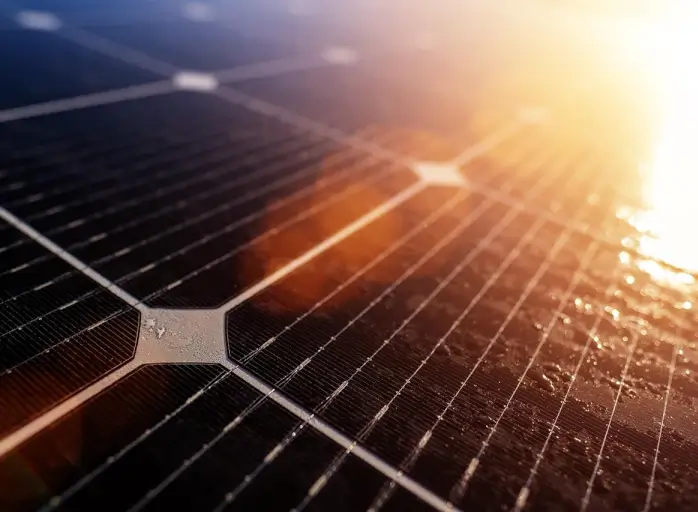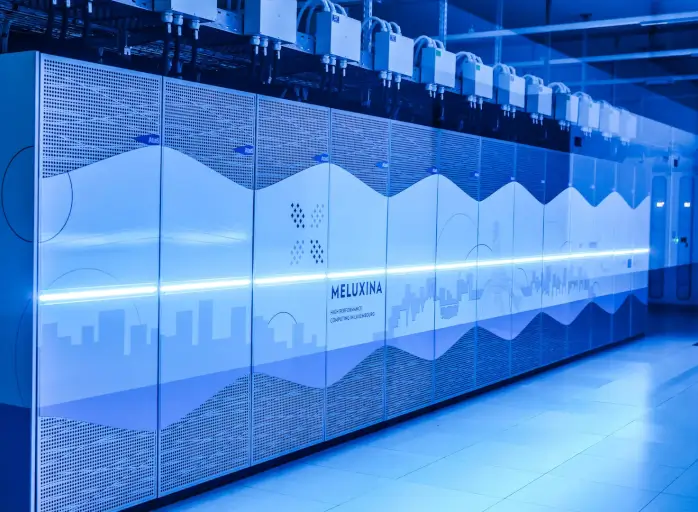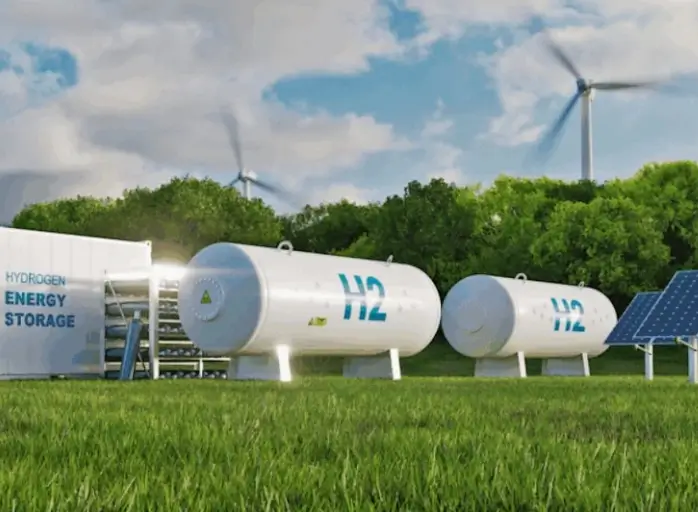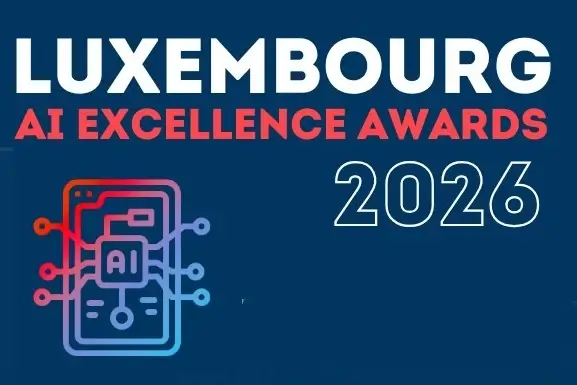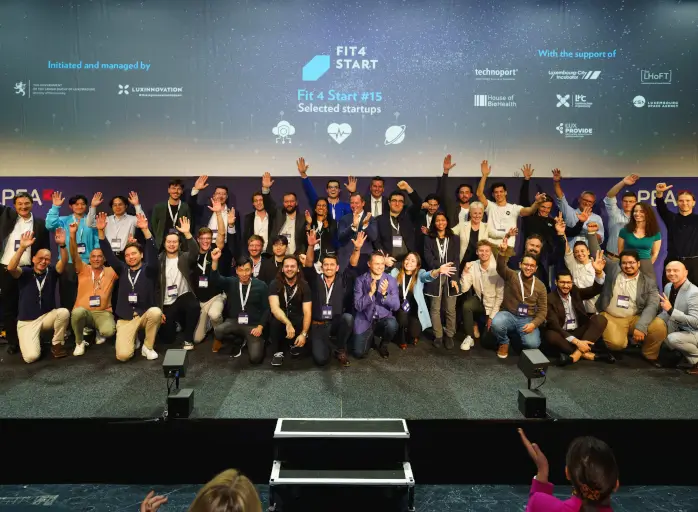
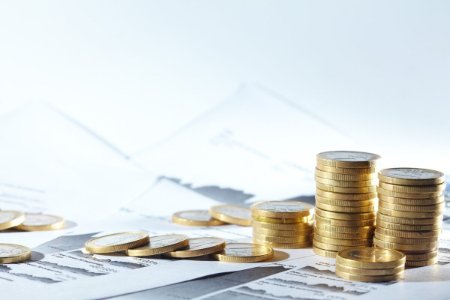
Aid for investments in environmental protection
Would you like to invest in a project to reduce the environmental impact of your company’s activities? But the project is costly, and you need financial assistance to take the plunge? Is your company based in Luxembourg? If so, you may be eligible for state aid to offset the additional costs linked to environmental protection in the investments you plan to make. Luxinnovation can guide you.
 Abigail Okorodus
Abigail Okorodus
A company that invests in environmental protection is helping to safeguard its future, as threats such as climate change are a serious risk for all businesses. There are several ways in which companies can reduce their impact on the environment. Switching from fossil fuels to renewable energies, improving the energy efficiency of processes, reducing emissions, recycling, or implementing waste reduction initiatives are just a few examples.
In Luxembourg, financial aid is available to encourage companies to invest in green technologies that enable them to reduce the environmental impact of their activities. Companies can benefit from state subsidies to cover some of the additional costs associated with environmental protection.
Combining investment measures with changes in practices can also have a tenfold positive impact on the environment.
Avit Blanchy
The Ministry of the Economy revealed in February 2023 that state subsidies for environmental protection totalled €95 million between 2018 and 2022, which attracted an additional €404 million in investments.
Environmental protection aid applies to different types of investments
Under the Luxembourg law of 15 December 2017, defining the requirements for receiving environmental protection aid, the main financial aid for environmental protection concerns, under certain conditions, all investments under the following categories may be eligible:
- Investments enabling businesses to exceed EU environmental protection standards or increase the level of environmental protection in the absence of such standards (art.4)
- early adaptation to future EU standards; (art. 5)
- energy efficiency measures (art. 6)
- high-efficiency cogeneration (art. 8)
- energy from renewable energy sources (art. 9)
- remediation of contaminated sites (art. 10)
- implementation of efficient (district) heating and cooling distribution networks (art. 11)
- recycling or re-use of waste; (art. 12)
- energy infrastructure (art. 13)
- aid for environmental studies that support the abovementioned investments (art. 14).
“In addition to this main group of aid defined in the 2017 law, new aid measures targeting emerging needs have seen the light of day since 2017, with a notable increase in pace in recent months. These include, in particular, aid to promote electromobility, such as the aid scheme for the installation of electric vehicle charging infrastructure since July 2022. Or the aid scheme for the purchase of zero-emission heavy duty vehicles since April 2023. The use of competitive calls for projects also makes it possible to offer new forms of support, such as photovoltaic self-consumption," explains Avit Blanchy, Senior Advisor - Corporate R&D and Innovation Support at Luxinnovation.
The amount of financial aid received by the applicant depends on the company’s size and the return on investment of the project. A simplified guide to environmental protection aid has been published by Luxinnovation and explains the eligibility criteria, admissible costs and application procedures for environmental protection aid. In addition, Luxinnovation can support companies throughout the application process, clarifying all the requirements based on the project type. This guidance ensures that the application file meets all the requirements, increasing its chances of success.
Discover investments you can make through the Fit 4 Sustainability programme
A first step a company could take is to evaluate its environmental impact and determine what type of investments are required to reduce its emissions. Thanks to the Fit 4 Sustainability programme, managed by Luxinnovation, companies are no longer alone in carrying out this diagnosis and the resulting action plan. The investments needed to reduce their environmental impact are proposed by a Luxinnovation-accredited consultant, who analyses the company's operations and suggests a costed action plan. The Ministry of the Economy covers 50% to 70% of the total cost of this external expertise, depending on the size of the company.
Sometimes relatively simple measures, such as installing variable frequency drives on certain engines, can have a more significant impact on energy consumption than the more costly replacement of the same equipment.
Avit Blanchy
“Using the Fit 4 Sustainability programme helps companies to take this first critical step in identifying the most appropriate investments from an environmental, technical and economic point of view. Sometimes relatively simple measures, such as installing variable frequency drives on certain engines, can have a more significant impact on energy consumption than the more costly replacement of the same equipment. Combining investment measures with changes in practices can also have a tenfold positive impact on the environment. One of the main advantages of the Fit 4 Sustainability programme is that the proposed solution is customised and adapted to each company's activities, infrastructure and environmental footprint,” explains Mr Blanchy.
Complementarity of funding programmes
The Klimapakt fir Betriber, a government initiative run by Luxinnovation and Klima-Agence, was set up to support the decarbonisation and energy transition process in Luxembourg.
“This ‘pact’ is exemplified in particular by increased collaboration between Luxinnovation and its partners, such as with Klima-Agence on charging stations, or with the Chamber of Commerce and the Chamber of Trades and Crafts, whose SME Packages Sustainability programme perfectly complements the Fit 4 Sustainability programme,” explains Mr Blanchy.
The use of competitive calls for projects also makes it possible to offer new forms of support.
Avit Blanchy
The SME Packages Sustainability programme, managed by the House of Entrepreneurship of the Chamber of Commerce and the eHandwierk of the Chamber of Trades and Crafts, offers SMEs up to €5,000 in aid to implement a concrete project with a positive impact on the environment. It is aimed at projects and studies costing less than €25,000, while Luxinnovation's Fit 4 Sustainability programme provides support for technical and economic environmental studies of up to €200,000.
Specific and temporary aid schemes have also been introduced in recent months to help companies limit the impact of rising energy prices on their balance sheets. A list of all the financial aid available to Luxembourg businesses, including environmental aid schemes, is available on the MyGuichet.lu platform.
Photo credit: Shutterstock


